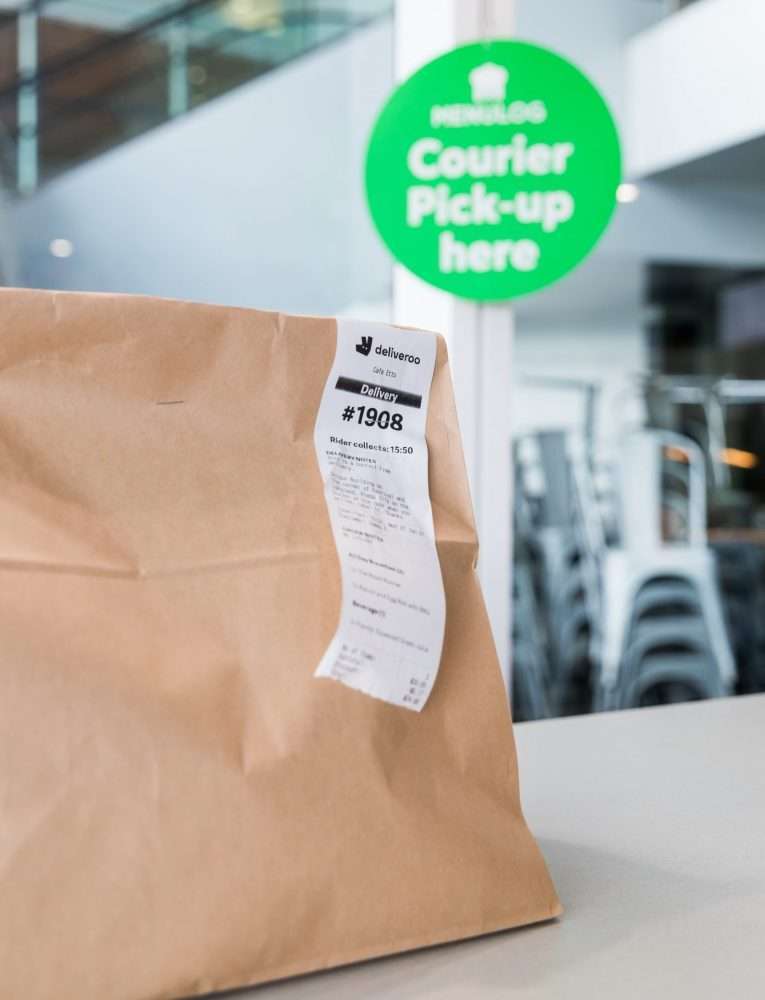
Full Bench Says What You Read Is What You Get!
In the decision of Deliveroo Australia Pty Ltd v Diego Franco [2022] FWFCB 156, a full bench of the Fair Work Commission (‘FWC’) upheld an appeal against a decision that a delivery driver was an employee with unfair dismissal rights.
The facts
Engagement of delivery driver
The matter arose from an unfair dismissal application lodged by a delivery driver who was engaged by Deliveroo Australia Pty Ltd (‘Deliveroo’). On 18 April 2017, the delivery driver electronically signed a Deliveroo Supply Agreement and later attended an onboarding session at the Deliveroo Sydney office. He accepted an offer to be provided with Deliveroo branded clothing and related equipment for which he paid a bond of $220 that was subsequently deducted by way of four fortnightly instalments.
He commenced performing services for Deliveroo on 22 April 2017 and purchased two motorbikes to perform delivery duties that he also used for personal use. The principal motorbike he used was purchased for $1,500. In April 2017 he also signed up to provide services to Uber Eats but did not commence delivery duties until 6 April 2018. From March 2020 he also performed work for a Door Dash delivery business.
Deliveroo system
The Deliveroo delivery services is facilitated by means of various computer-based applications or Apps that are accessed via smart phones and other mobile electronic devices. The system receives customer orders for food and drink using the Deliveroo website or Deliveroo Customer App. Once the order and payment are accepted, an algorithm assesses which delivery drivers logged onto the Deliveroo Rider App are able to make the most efficient delivery. The delivery driver deemed most efficient is then offered the delivery, which can either be accepted or rejected by the delivery driver. If rejected or not accepted within 100 seconds of notification, the next most efficient delivery driver is offered the delivery.
Once a delivery driver accepts an order, the system provides a suggested route to the restaurant using Google Maps. When the delivery driver approaches the restaurant, the system notifies the customer that the order is being collected. Upon collection of the order, the delivery driver inputs a ‘collected’ message on the Deliveroo Rider App whereby the delivery driver is then provided with the customer’s location and a suggested route using Google Maps. After the order is delivered to the customer, the delivery driver inputs a ‘delivered’ message on the Deliveroo Rider App and is then able to receive the next delivery order offer.
It is important to note that after a delivery driver accepts a particular order, the delivery driver is able to reject completion of the order by un-assigning themself from the order. In many instances, this may occur when the delivery driver reaches the restaurant. This may be due to a long delay with preparation of the order by the restaurant or the customer delivery address being considered too far away.
Supply/supplier agreements
There were a number of supply/supplier agreements that applied during the delivery driver’s service with Deliveroo. Although these were all different, the essential elements for the engagement to perform services were broadly consistent with some alteration in terminology and detail.
In summary, the 2019 supplier agreement stipulated that the delivery driver was:
- a supplier in business on his own account;
- free to provide services personally or through any delegate;
- not obliged to do any work for Deliveroo;
- free to choose when and wherever he worked;
- free to work for any third party, including any competitor of Deliveroo;
- required to provide his own mobile phone and vehicle;
- paid a delivery fee for each completed delivery pursuant to an invoice for services;
- required to pay a 4% administration fee for the provision of administration services including access to proprietary software and preparation of invoices;
- required to complete services within a reasonable time period and in a safe and efficient manner;
- responsible for his own tax and insurance arrangements. However, Deliveroo also provided certain insurance cover.
Termination by Deliveroo could occur at any time and for any reason with provision of one week’s notice in writing.
Termination of Supplier Agreement
During the delivery driver’s service, Deliveroo determined that he had engaged in poor or inadequate service. This related to deliveries being marked as received when these had not been received and significantly delayed delivery times. After a number of warnings were given without the delivery driver being able to respond, Deliveroo sent an email to the delivery driver on 23 April 2020 advising that he had failed to deliver orders in a reasonable time, had breached the supplier agreement and that his supplier agreement would be terminated with 7 day’s notice. The delivery driver was unsuccessful with persuading Deliveroo not to terminate his supplier agreement and on 30 April 2020 his access to the Deliveroo Rider App was disabled.
Original decision and appeal
The original decision of a single FWC Commissioner was based on applicable case law at the time resulting in the delivery driver being considered an employee and his dismissal was unfair. (Diego Franco v Deliveroo Australia Pty Ltd [2021] FWC 2818). Deliveroo then lodged an appeal against the decision. However, the full bench deferred determination of the appeal until the High Court (‘HC’) published the decisions of CFMMEU v Personnel Contracting Pty Ltd [2022] HCA 1, 398 ALR 404, 312 IR 1 (‘Personnel Contracting’) and ZG Operations Australia Pty Ltd v Jamsek [2022] HCA 2, 398 ALR 603, 312 IR 74 (‘Jamesk’).
These HC decisions changed the legal principles to determine whether a relationship is that of employee/employer or principal/independent contractor. For instance, Personnel Contracting is precedent for there no longer being a requirement to consider the “totality of the relationship” including the terms of the employment contract and manner of performance of the contract.
Key propositions
In deciding the appeal, the full bench adopted the key propositions in Personnel Contracting that were stated in the full bench FWC decision of Chambers and O’Brien v Broadway Homes Pty Ltd [2022] FWCFB 129 at [74] as follows:
“(1) When characterising a relationship regulated by a wholly written, comprehensive contract which is not a sham or otherwise ineffective, the question is to be determined solely by reference to the rights and obligations under that contract. It is not permissible to examine or review the performance of the contract or the course of dealings between the parties.
(2) The subsequent conduct of the parties may be considered to ascertain the existence of variation of contractual terms.
(3) The multifactorial approach only has relevance in respect of the required assessment of the terms of the contract.
(4) It is necessary to focus on those aspects of the contractual relationship which bear more directly upon whether the worker’s work was so subordinate to the employer’s business that it can be seen to have been performed as an employee of that business rather than as part of an independent enterprise. The question is: whether, by the terms of the contract, the worker is contracted to work in the business or enterprise of the purported employer.
(5) Existence of a contractual right to control the activities of the worker (including how, where and when the work is done) is a major signifier of an employment relationship.
(6) The label or characterisation placed on the relationship by the contract is not relevant even as a “tie breaker”, or at least it is not determinative.” (footnotes omitted)
The full bench added a further proposition “that a contractual freedom on the part of the party performing the relevant work to accept or reject any offer of work and to work for others is not necessarily a contraindication of employment and may rather be consistent with casual employment.”
Full Bench decision
There was no dispute that the 2019 supplier agreement applied at the time of termination and comprehensively set out the whole of the contractual rights and obligations of the parties. On this basis, the full bench determined, consistent with Personnel Contracting, that the question for determination of whether the delivery driver was an employee of Deliveroo at the time of termination must be based on the terms of the 2019 supplier agreement.
Consistent with this approach, the full bench proceeded to analyse the terms of the 2019 supplier agreement. It noted that clause 2.3 gave the delivery driver discretion regarding whether, when and where he logs in or provides services. Further, the Deliveroo Rider App enabled the delivery driver to log in and offer to provide services at any time and in any area where Deliveroo anticipated a need for delivery drivers. The full bench noted that this is in contrast to casual employment whereby an employer at its discretion offers work at a particular time and place which the worker may accept or reject. The full bench was of the opinion that this constituted a reversal of control not normally associated with casual employment. Further, clause 2.5.1 allowed the delivery driver, even once accepting an order, to subsequently ‘unassign’ himself from the order resulting in him not being required to complete it.
Clause 4.1 obliged the delivery driver to provide at his expense the vehicle used to perform deliveries. The full bench noted that because the 2019 supplier agreement allowed for more than just a bicycle, the commentary in Jamesk by Gageler and Gleeson JJ was relevant in that the delivery driver may provide a “substantial item of mechanical equipment” such that “the personal is overshadowed by the mechanical”.
Clause 9 did not require personal service by the delivery driver and allowed the delivery driver the right, without prior approval from Deliveroo, to have someone else perform the contract services.
Clause 5.1 entitled the delivery driver to be paid a fee for each completed delivery which constitutes payment by results rather than for time worked. While the full bench noted this was not inconsistent with employment, clause 5.3 was, as it required payment of a 4% administration fee of the total fees payable for access to Deliveroo’s software, provision of invoices and other administration services.
Given the approach required by Personal Contracting, the full bench was not able to consider matters concerning the practical working relationship between the delivery driver and Deliveroo. The full bench was of the view that had it been able to take these matters into account it would have determined the delivery driver to be an employee. The full bench noted as a matter of reality that:
- Deliveroo exercised a degree of control over the delivery driver’s performance of the work;
- the delivery driver presented himself to the world with Deliveroo’s encouragement as part of Deliveroo’s business;
- the delivery driver’s means of delivery did not involve a substantial capital outlay; and
- the relationship was one of personal service.
Take home points
The full bench decision represents a fundamental change to the approach for determining whether a relationship is that of employee/employer or principal independent contractor. While this decision was based on a gig economy delivery driver model, the key propositions apply equally to other work situations.
Please note that the current ALP Federal Government indicated prior to the election that workers with ‘employee-like conditions’ such as those in the gig-economy should be covered by the Fair Work Act 2009. Given this policy agenda, it is likely that federal legislation may be introduced to alter the situation to that which operated prior to Personal Contracting. We will keep you informed of any further developments.

Connect with us
If you would like to know more about employment arrangements, please contact us at hello@mapien.com.au and a Mapien Workplace Strategist will be in touch within 24 hours.

